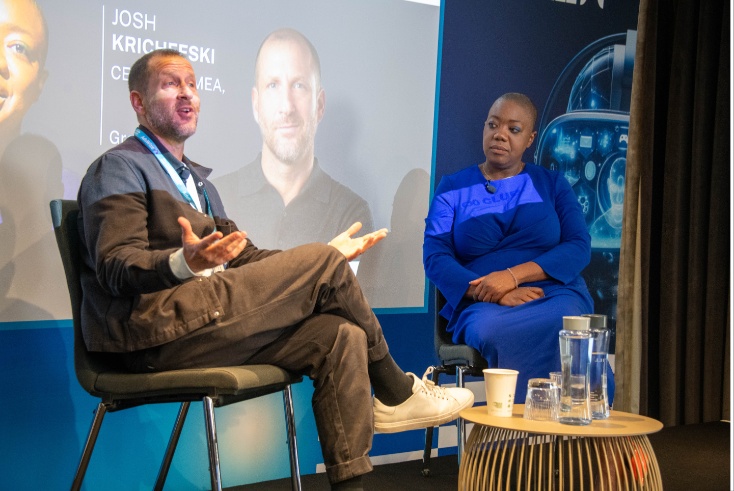Ad industry needs training to put its people first

The Future of Audio and Entertainment 2024
The ad industry needs to prioritise regularly training its leadership talent and ensuring it does not cut back on learning budgets.
This was the main takeaway in a fireside chat with Josh Krichefski, GroupM UK and EMEA CEO, and Chloë Davies, founder of It Takes A Village, at The Future of Audio and Entertainment last month.
In the session, members of The Media Leader‘s Future 100 Club posed questions and raised concerns around inclusive leadership, retention of diverse talent and diminishing action on inclusion across the industry.
These themes were highlighted in Krichefski’s People First Promise as he began his IPA presidency that called on media and advertising companies to prioritise and evidence their work to protect employees’ mental health.
Importance of mental health first aid training
A lack of training across adland, from management to mental health to inclusion to unconscious bias, was highlighted as “a real issue”.
One delegate said they felt like while there were conversations about inclusion happening with future leaders, “a lot of the problem sits with our current leaders”.
As a result, participants suggested compulsory annual or regular training for mid- and senior-level leaders to encourage action and understanding beyond just talk should be in the pipeline.
Referencing the way companies request employees to undertake regular training on topics such as email phishing, training on inclusion “needs to be the same thing”. It was important “to keep being reminded” in a busy world that things are important even if it might not be affecting you personally, they added.
One audience member stressed that there was not “a lack of positive intent” from agency leaders, but conceded: “I do not think any of us are trained well enough, as managers, how to really manage and understand people. I think everyone should have mental health first aid training if you’re going to be a manager.” This “would change our business significantly” alongside evolving inclusion training.
Make it mandatory and ‘sticky’
One participant suggested a mandatory training system where every agency could have a learning and development department “built into the infrastructure of the business” to promote education and consolidate research and insight into libraries.
There was a discussion around how best to incentivise training or make it “sticky” in the priority list of leaders when they are busier than ever. One delegate responded: “Businesses that have a learning culture are successful businesses — simple as that. And if you don’t, you’re going to fail, and that’s the incentive.” After all, one should not have to choose between a successful business and focusing on people, they added, because they are “the same fucking thing”.
Leaders “should never be pulling back on learning budgets”, which are “fundamentals of business success”, particularly in an industry where people are the product.
A ‘fundamental’ part of DEI
The conversation also covered the importance of not only measuring but reporting diversity and inclusion at media and advertising companies, and ensuring that it is not a box-ticking exercise.
Reporting levels of diverse talent was “a fundamental part” of a business, yet a lot of agencies have not been reporting that figure, one audience member pointed out. Being transparent and sharing learnings and future actions with staff based on DEI statistics was also recommended as a key avenue for change.
The session was conducted under Chatham House rules.
Last week, the IPA named 67 media and advertising companies that have demonstrated commitment to their employees’ mental health and wellbeing as part of Krichefski’s People First Promise.




